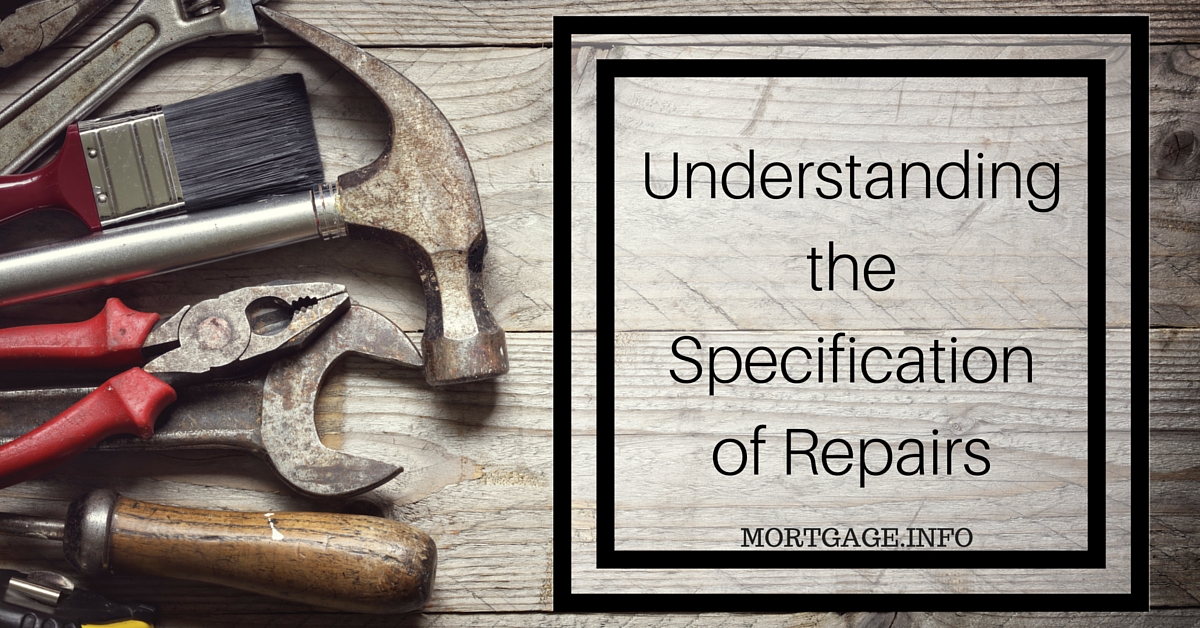 The 203K loan requires more intricate paperwork than any other type of loan. Every detail regarding the loan needs to be documented and approved by a loan consultant, especially the repairs that are going to be completed. The form that details the repairs is the Specification of Repairs. This document is prepared, overseen, and approved by the loan consultant with the input of HUD along the way.
The 203K loan requires more intricate paperwork than any other type of loan. Every detail regarding the loan needs to be documented and approved by a loan consultant, especially the repairs that are going to be completed. The form that details the repairs is the Specification of Repairs. This document is prepared, overseen, and approved by the loan consultant with the input of HUD along the way.
The Underwriter, Appraiser and the SOR
The underwriter and appraiser will also be privy to what is written on the Specification of Repairs. The details of what is to be changed, fixed, or remodeled will have an impact on the final value of the home as well as the amount of the loan as it affects the final loan-to-value ratio. An experienced person (aka the loan consultant) will need to figure out how each repair will affect the value of the home. The appraiser is involved in this process as well, which is why the SOR is such an important component of the 203K loan.
Categories on the SOR
The Specification of Repairs is broken down into several categories. These categories help the underwriter know exactly which repairs are not negotiable and which can be omitted if there is not room in the loan based on the applicant’s credit history, income, and other qualifying factors.
Mandatory Repairs – Repairs that must be done are typically related to the safety of the home. They could be structural issues, mold, roof repairs, or repairs to the electrical components of the home, just to name a few.
Optional Repairs – These are the repairs that the HUD consultant recommends in order to increase the value of the home or to enhance its function. These are not mandatory and can be negotiated by the underwriter if there is not enough room in the loan or if the repairs do not provide enough value after being reviewed by the appraiser.
Non-Essential Repairs – These are the repairs that you would like to have done, but they have zero impact on the home or the loan. The majority of these repairs are cosmetic and are being done just to make the home exactly what you want it to be. In the end, these changes could be eliminated if there are issues with the loan or getting the right value for the home, but if there is room, they are a great way to make your house a home!
How the SOR Helps
Aside from the fact that the SOR helps you choose the right repairs to be completed in order to get the funding you need, it can help you make many other decisions.
- Choosing the Contractor – You need to choose your contractor wisely. This is a very difficult part of the process. Going off of referrals from the Mortgage Company or people that you know is a great way to proceed. Don’t fall for advertisements that claim a contractor is “203K approved” because that does not exist. The HUD consultant can also help you weed out the bad contractors. You need one that is experienced in this type of work as they are working on a tight budget and tight schedule. If things do not go as planned, it could harm the loan in the end.
- Creating the Right Budget – The SOR, when overseen by the loan consultant, will contain the right repairs and help you create the right budget. There are many contractors out there that will “low ball” an estimate just to get the work. In the end, however, their work is typically subpar and can even fall through. If this happens, time is of the essence to find a new contractor in order to meet the time requirements of the loan. If the estimates were too low, it could be difficult for you to find a contractor to work on the budget that has already been created and closed on with the 203K loan.
If you are looking to purchase a fixer upper home, you will need a lot of input. It is not as simple as purchasing a rundown home and fixing it up. There are many steps that need to be taken to ensure that the process is done right. The Specification of Repairs plays a vital role in most of these decisions and should be used as such. Don’t ignore the need to have a loan consultant help you create this document in order to ensure the success of your 203K loan.
